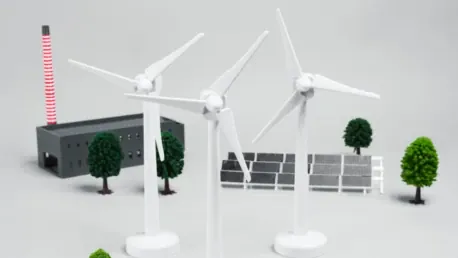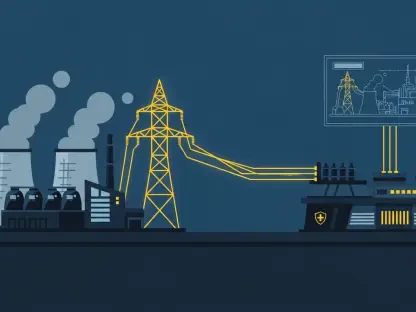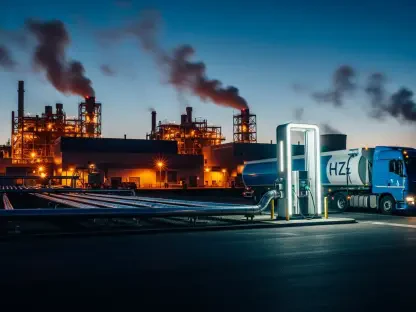South Africa is making significant strides in renewable energy through the awarding of eight solar photovoltaic (PV) projects and eight battery energy storage projects. These initiatives are part of the Renewable Energy Independent Power Producer Procurement Programme (REIPPPP) Bid Window 7 and the Battery Energy Storage Independent Power Producer Procurement Programme (BESIPPPP) Bid Window 2. Collectively, these projects are expected to inject substantial funds into the economy, generate numerous job opportunities, and propel the nation’s transition to sustainable energy sources.
Major Investments in Renewable Energy
Solar Photovoltaic Projects
Under REIPPPP Bid Window 7, eight solar PV projects with a combined contracted capacity of 1,760MW have been selected from a competitive pool of 48 bids. The financial commitment to these projects totals R31.4 billion, a substantial investment aimed at promoting the nation’s renewable energy framework. These projects are anticipated to create approximately 6,971 job opportunities during both the construction and operational phases. A noteworthy aspect of these projects is the allocation of 38.8% of total project costs, amounting to R7.8 billion during construction and R2.4 billion during operations, to local content.
The emphasis on local content aims to ensure that a significant portion of the funds circulated within the economy benefits local businesses and suppliers. This approach not only stimulates economic growth but also bolsters the development of a robust local supply chain. The strategic focus on job creation and local involvement sets a strong foundation for the country’s renewable energy sector and fosters skill development within local communities. This trajectory aligns with South Africa’s broader socio-economic goals and provides a sustainable model for future projects.
Economic and Social Impact
The solar PV projects are not just about generating electricity; they are also about economic and social transformation. Empowerment initiatives are a central component, with R3 billion directed toward Black Enterprise Procurement. Beyond this, significant investments target Broad-Based Black Economic Empowerment (B-BBEE) procurement for Qualifying Small Enterprises (QSEs) and Exempt Micro Enterprises (EMEs), black women, enterprise development, socio-economic development, and skills development initiatives. These efforts are designed to empower historically disadvantaged groups and foster inclusive growth, reflecting a commitment to equitable distribution of benefits.
Such initiatives have a profound impact on local communities, creating opportunities for small businesses and historically marginalized individuals. They pave the way for sustained economic improvement and foster a sense of ownership and participation within renewable energy development. By integrating these socio-economic dimensions into the renewable energy projects, the South African government ensures that the transition to sustainable energy sources benefits a broad spectrum of the population, thereby contributing to social cohesion and long-term stability.
Battery Energy Storage Projects
Importance of Battery Storage
The BESIPPPP Bid Window 2 focuses on the implementation of eight battery energy storage projects. These initiatives are crucial for providing necessary battery storage infrastructure, which ensures grid stability and facilitates the integration of renewable energy sources. The combined total investment from the selected bidders for these projects stands at R12.8 billion, underscoring the substantial financial commitment required to enhance the country’s energy framework. The integration of battery storage systems is a vital component of modern energy infrastructure, enabling more effective management of electricity supply and demand.
Battery storage systems allow for the efficient storage of surplus energy generated during periods of low demand, which can then be released during peak demand times, thereby stabilizing the grid. This capability is particularly important given the intermittent nature of renewable energy sources like solar and wind. By investing in battery storage projects, South Africa is not only enhancing its renewable energy capacity but also ensuring the reliability and resilience of its energy supply, mitigating potential disruptions associated with energy transition.
Job Creation and Local Content
Job creation is pegged at 1,570 opportunities during construction and operations within the battery storage projects, with local content contributing 31% of project costs. This allocation ensures that a considerable portion of the investments directly benefits local suppliers, contractors, and workforce, thereby strengthening the domestic economy. Similar to the solar projects, these battery storage initiatives channel significant funds into empowerment programs, including Black Enterprise Procurement and B-BBEE procurement for QSEs and EMEs. These efforts are designed to support historically disadvantaged suppliers, fostering growth and sustainability in the local business ecosystem.
The commitment to skills training and education is another critical aspect of these projects. Investment in skills training programs and bursaries for black students not only enhances the immediate workforce but also prepares future generations for employment opportunities within the renewable energy sector. These initiatives contribute to building a highly skilled and competent workforce, essential for supporting South Africa’s expanding renewable energy landscape. By prioritizing local content and socio-economic development, these projects ensure a broader positive impact on the South African economy.
Government Commitment to Inclusive Growth
Economic Growth and Empowerment
The overarching trends underscore a unified effort by the South African government to drive economic growth, empower communities, and address urgent energy needs. The investments in local content and Black Economic Empowerment initiatives reflect a strong commitment to inclusive economic progression and transformation. These renewable energy projects are not only set to create jobs and stimulate small businesses but also support historically disadvantaged suppliers, ensuring that the economic benefits of renewable energy development are widely distributed.
Such initiatives are crucial in tackling issues of inequality and unemployment that have long challenged the South African economy. By integrating economic empowerment strategies into renewable energy projects, the government is fostering a more inclusive and resilient economic environment. This approach aligns with the nation’s broader objectives of sustainable development and social equity, demonstrating a steadfast commitment to improving the standard of living for all citizens.
Socio-Economic Initiatives
The socio-economic initiatives embedded within these projects highlight the government’s pledge to ensure that the advantages of renewable energy development reach beyond just electricity generation. Key focus areas include enterprise development for black-owned businesses, skills training for black individuals (inclusive of bursary programs for students and development for people with disabilities), and substantial investments aimed at uplifting local communities. These efforts aim to empower communities, tackle unemployment, and build a skilled workforce capable of supporting South Africa’s expanding renewable energy sector.
Such initiatives are integral to creating a sustainable and inclusive energy sector. By investing in human capital and enterprise development, the government is laying the groundwork for long-term economic growth and social advancement. These initiatives offer a roadmap for sustainable development that prioritizes economic inclusivity and community engagement, ensuring that the benefits of renewable energy projects are felt across all levels of society. The focus on skills development and education, in particular, prepares the workforce for future opportunities, fostering a culture of innovation and empowerment.
Private Sector Collaboration and Transparency
Role of Private Investment
The REIPPPP and BESIPPPP programs play substantial roles in drawing private investment into South Africa’s energy sector. Promoting renewable energy is seen as a cornerstone of South Africa’s Just Energy Transition, aligning with global climate change mitigation efforts while enhancing energy security and economic inclusivity. The involvement of private investors is critical for the scalability and sustainability of these projects, providing the necessary capital and expertise to drive innovation and efficiency within the sector.
Private sector collaboration also brings a level of accountability and performance-driven outcomes that are essential for the success of large-scale energy projects. By attracting private investment, the government can leverage additional resources and technological advancements, accelerating the transition to a more sustainable and resilient energy infrastructure. This multi-stakeholder approach ensures that the benefits of renewable energy projects are maximized and that the country’s energy goals are achieved in a timely and efficient manner.
Commitment to Transparency
South Africa is making significant progress in the realm of renewable energy with the recent approval of eight solar photovoltaic (PV) projects alongside eight battery energy storage projects. These ambitious endeavors fall under two pivotal programs: the Renewable Energy Independent Power Producer Procurement Programme (REIPPPP) Bid Window 7, and the Battery Energy Storage Independent Power Producer Procurement Programme (BESIPPPP) Bid Window 2. The implementation of these projects is expected to bring numerous benefits to the country. Financially, they will funnel a considerable amount of money into the national economy. Moreover, these initiatives will create a multitude of job opportunities, offering employment to many South Africans. On an environmental level, these projects will significantly promote South Africa’s shift towards sustainable and renewable energy sources, reducing reliance on fossil fuels. This dual-pronged approach addresses both economic and ecological goals, marking a noteworthy stride towards a greener, more sustainable future for the nation.









